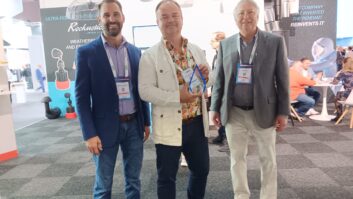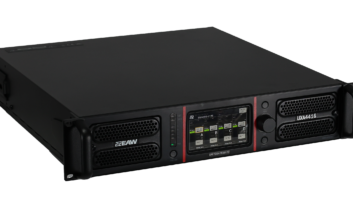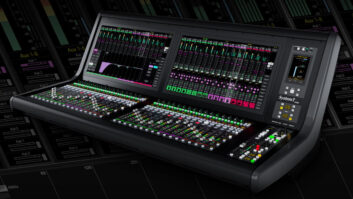A Dirty Little Secret
Dec 1, 2002 12:00 PM,
By Nathaniel Hecht
WERE YOU AWARE that consumer electronic products account for 40 percent of the lead in landfills, according to the Environmental Protection Agency (EPA)? How about the fact that the EPA estimates that electronic devices have become the largest single source of heavy metals contamination? (Just for review, that means mercury, barium, and cadmium leaching into the groundwater and funneling through the country’s municipal waste systems.) Lead from televisions is a major part of this waste, which means television rots more than just your brain.
Each television picture tube contains four to eight pounds of lead. That lead is extremely hazardous when it gets into the environment, which has been demonstrated in study after study. Lead has been shown to cause juvenile retardation, strokes, cancer, kidney disease, and hearing impairment, and that is only the final production waste. To chart the actual environmental impact of lead on society, you also have to consider the ruined landscapes and fouled waters caused by lead mining.
Laws have stopped the production of leaded gasoline, yet with more than 43 million U.S. households having three or more TV sets, it is easy to see how the scope of this problem is out of control. With the FCC-mandated switch to HDTV by 2006, many people will probably upgrade their old sets. To keep heavily leaded picture tubes and other contaminants out of landfills, California and Massachusetts recently classified them as hazardous waste.
The EPA is lobbying for further acceptance of this status in other states (that’s right — you can’t haul them all to Nevada anymore), but there is still a problem. Research shows that more than 50 percent of electronic waste that is recycled is done so in developing countries under unregulated conditions. The problem is so bad that leading environmental groups have called for a ban on the export of all hazardous wastes.
Now lest you think that I’m just a bleeding-heart environmentalist (and I am, somewhat), you should know that I am all for consumerism in our industry. The last thing I want to see is a downturn in sales as a result of rampant guilt and morality among the good people of the world. However, we have a responsibility to help guide customers (and manufacturers, for that matter) to be more responsible for the risks they are taking when they choose technology, especially when it is the disposable kind. Here are some things that you can do to help this problem in both your business and your personal life:
Consolidate devices
Use and sell TV tuners and modules to convert your home computer to double duty as a TV set. You might as well turn two tubes into one.
Buy flat-panel TVs
Flat-panel TVs lack glass picture tubes, which means less lead contamination. However, there will still be mercury and other toxic substances to worry about.
Plan for HDTV
With the mandated changes on the way, consider your new purchases in light of the upgrade and consider suggesting conversion accessories instead of just trashing the set.
Look for the EPA’s Energy Star label
Sets with these tags use 75 percent less energy in standby mode than other sets. TVs top the list of standby power consumption (standby mode uses about half of all energy consumed by stereo systems, VCRs, and TVs), and TVs waste enough power to light 5 million homes each year. Don’t forget that they add 1 million tons of carbon emissions to the atmosphere in the process.
If any of that sparks your interest, check out the Electronic Industries Alliance Web site (www.eiae.org) for a list of TV recycling locations in the United States. For more data about recycling abuses in this area, you can check out reports by the Silicon Valley Toxics Coalition (www.svtc.org) and the Basel Action Network (www.ban.org). Be good to yourself and your customers and save a piece of the environment.
Line Out is a monthly forum for audio and video contracting professionals to share their viewpoints about industry topics. We welcome your contributions to this space. Submit manuscripts of 750 words to: Line Out, S&VC, 6400 Hollis Street, Suite 12, Emeryville, CA 94608. Include a daytime phone number. We’ll contact you if we choose to run your submission.








